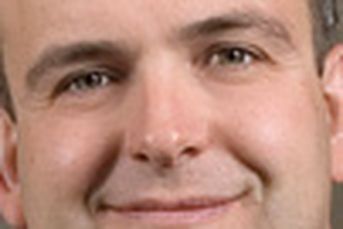Stifel CEO downplays impact of fiduciary standard on brokers
Stifel Financial Corp., which increased its brokerage force by 23% in the past year, won't be as buffeted as many analysts expect if regulators impose a fiduciary standard on brokers, the company's chief executive said today.
Stifel Financial Corp., which increased its brokerage force by 23% in the past year, won’t be as buffeted as many analysts expect if regulators impose a fiduciary standard on brokers, the company’s chief executive said today.
“People think it more impacts Stifel, but that’s not the case,” chief executive Ronald Kruszewski said during a conference call with analysts to discuss the firm’s 33.5% jump in second-quarter earnings. “We all have the same programs … and I think it will be a new fiduciary standard anyway, one that will be a disclosure regime.”
Securities and Exchange Commission Chairman Mary Schapiro has endorsed imposing a fiduciary standard on brokers when they offer advice that would be “harmonized” with the standard that applies to registered investment advisers. In a speech earlier this month, she said the regulator plans to “craft rules that increase investor confidence while preserving brokers’ ability to offer a full spectrum of services.”
Some investment advisers fret that harmonization would dilute the standard, and the brokerage industry has been lobbying hard to ensure that its brokers and other businesses won’t be too constrained under a fiduciary regime that requires disclosure of all material conflicts and putting customer interests first. Brokers currently are subject to a suitability standard that requires products and services to be appropriate, if not optimal, for customers’ needs and risk appetites.
Mr. Kruszewski, who is the chairman of the Securities Industry and Financial Markets Association’s political action committee, said he is confident regulators understand the balance a fiduciary standard must steer between investor protection and industry efficiency.
“It will be good for our business” by increasing investor trust and confidence, if regulators get it right, he said.
The Dodd-Frank Wall Street Reform and Consumer Protection law passed last month gives the SEC latitude to change the standard as well as to eliminate another favorite protection of the brokerage industry: contracts that require clients to submit disputes to mandatory arbitration rather than to litigate disputes in court. Mr. Kruszewski said that the fiduciary standard could ironically temper some of the negative effects of more litigation because greater disclosure of conflicts will likely help brokerage firms win motions to dismiss lawsuits.
Stifel Financial last month made a bid to goose its investment banking and trading businesses by purchasing Thomas Weisel Partners Group, an equities boutique, but retail brokerage continues to be its biggest business.
Revenue in global wealth management, which also includes its small bank and trust unit, grew 46.8% to $199.9 million from a year earlier and operating contribution (its net income metric) jumped 74.3% to $40.4 million. Revenue in Stifel’s institutional businesses fell 0.4% to $124.6 million, and operating contribution was off 3.4% to $30.8 million.
Stifel last year absorbed 56 retail branches and more than 300 advisers from UBS Financial Services, an acquisition Mr. Kruszewski said has increased the firm’s fee-based revenue despite difficult market conditions, though he said he has no preference between commission and fee revenue.
“The private investor still has aftershocks from that flash crash,” he said about the almost 1,000-point market drop on May 6, “and the overall slowdown that occurred in June continues during the summer.”
Stifel is continuing to build its retail franchise and is well positioned to gain market share as markets revive and more brokers leave large bank-controlled competitors, Mr. Kruszewski said. Stifel has somewhat reluctantly been playing the “upfront” bonus game to recruit brokers, though “when it gets crazy we are not adjusting, so we are going to lose market share, relatively speaking,” he said.
Transitional pay, including recruiting and retention bonuses for the retail brokerage division, rose to 7.6% of net revenue from 7%, higher than in the rest of the company. Total compensation and benefit expenses in wealth management totaled 62% of net revenue, about flat with this year’s first quarter and the second quarter of last year.
Stifel added 43 financial advisers and nine retail offices during the quarter, and 89 advisers and 15 offices in the first six months this year. It now has 1940 advisers.
Its profit margin from the retail brokerage, and bank and trust units was about 27.5%, below the firm’s objective of 30%. Mr. Kruszewski said that fee waivers on money-market and other accounts in the near-zero interest environment totaled more than $50 million this year and “obviously affects our margins.”
Stifel disclosed during the conference call that it expects to take a charge of $104.8 million related to deferred compensation costs at Thomas Weisel, which could shave $2.88 a share from its third-quarter earnings.
Learn more about reprints and licensing for this article.




